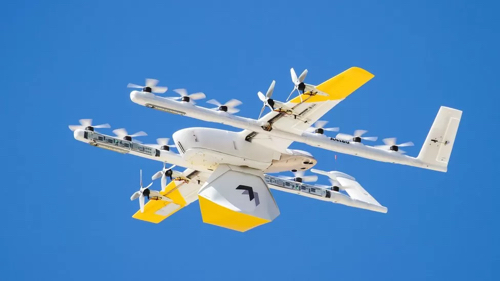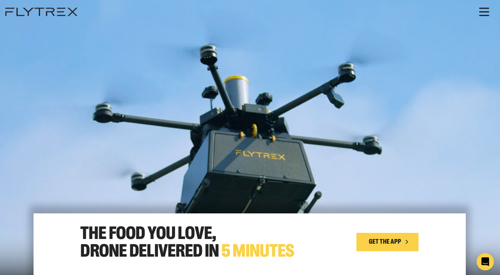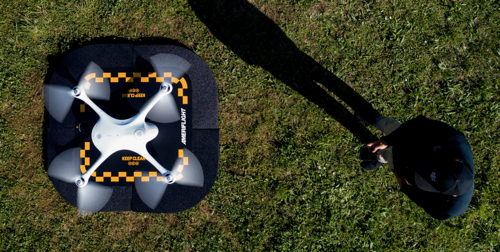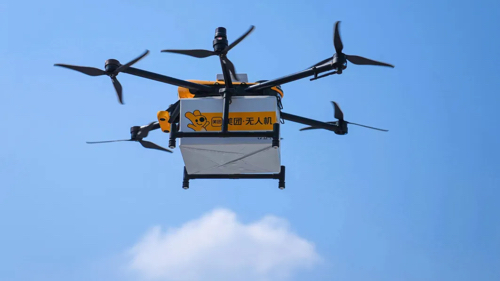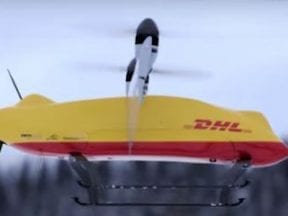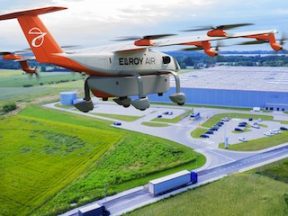The U.S. Federal Aviation Administration recently approved four drone operators to fly deliveries beyond the visual line of sight. Previously human observers were required along a drone’s flight route, within a mile-and-a-half of distribution centers, to ensure no air traffic interference.
The new FAA regulations allow commercial drones to fly without observers, enabling broad integration of autonomous aircraft into the U.S. national airspace and making commercial drone delivery scalable and affordable. The decisions also pave the way for drone operators to receive streamlined approval and for retailers to accelerate efforts to deliver products via unmanned aircraft.
Here are updates from select drone delivery providers as they work to develop commercial operations.
UPS Flight Forward – Matternet
UPS’s Flight Forward has received approval from the FAA to operate the M2 drone from Matternet, a manufacturer of drones and related software, beyond the visual line of sight for package delivery. Flight Forward can remove human observers by installing a ground-based radar to scan the skies for air traffic conflicts.
Flight Forward will use the Matternet mission-control software in its remote operations center to pilot up to three aircraft per operator. This will improve the economics and support the expansion of drone delivery.
–
Walmart
Since 2021, Walmart has operated drone delivery across seven states and 36 stores, completing more than 10,000 deliveries through partnerships with DroneUp, Zipline, and Flytrex.
Last month, Walmart announced a partnership with Wing, the on-demand drone delivery provider powered by Alphabet, Google’s parent company. Walmart will soon offer the new service in two metro-Dallas stores, reaching an additional 60,000 homes.
–
Wing
Earlier in the year, Wing unveiled its Delivery Network, a decentralized, automated system supporting high-volume drone delivery across a metro area and sparsely populated regions. The network relies on logistics software with three hardware elements: (i) delivery drones, (ii) “pads,” where drones takeoff, land, and recharge their batteries, and (iii) “autoloaders” that allow partners to preload packages for automatic pickup.
Wing has tested its network in Logan, Australia, where it delivers up to 1,000 packages a day. The company has also started trial drone deliveries in the Dublin, Ireland, suburb of Lusk.
–
Zipline
Zipline was among the companies to receive FAA authorization to make commercial deliveries beyond visual line-of-sight. Zipline’s drones, called Zips, have an onboard detect-and-avoid system that enables continuous, real-time airspace monitoring. Zipline says it worked closely with the FAA for rigorous testing of that system. Zipline states it will fly in the U.S. without visual observers before year-end.
Earlier in the year, Zipline unveiled Platform 2 to provide fast and quiet autonomous delivery directly to homes. Zipline’s drones fly more than 300 feet above the ground and are nearly inaudible. Zipline has partnered with businesses across the healthcare and restaurant sectors, such as Sweetgreen, to use the new home delivery service.
–
Flytrex
Flytrex, an Israel-based drone delivery provider, has partnered with multiple restaurants — including Unilever’s The Ice Cream Shop, Papa Johns, Freddy’s Frozen Custard and Steakburgers, and Little Caesars — to use its new autonomous delivery process at their sites. Other partner businesses use Flytrex’s manual process, wherein a Flytrex employee picks up the ordered product and sends it from a drone station. Flytrex currently delivers only in Granbury, Texas, (near Ft. Worth) and three cities in North Carolina.
–
Ameriflight – Matternet
Ameriflight received FAA approval in May to operate the Matternet M2 for commercial delivery. Ameriflight is the second operator in the U.S. approved to operate the Matternet M2, designed for large-scale operation with an FAA waiver allowing up to 20 drones by a single pilot at Matternet’s California test facility.
Under the terms of the FAA agreement, Ameriflight will operate the Matternet M2 for package delivery to Matternet’s customers located in dense urban and suburban environments across the U.S. Ameriflight will also use Matternet’s software platform to manage a nationwide fleet of M2 drones from a central remote operating center. The partnership will focus on deliveries for healthcare and ecommerce.
–
SkyDrop
In April, SkyDrop (formerly Flirtey) received approval from New Zealand’s Civil Aviation Authority to launch its first drone hub, in Huntly, New Zealand, for store-to-door delivery. According to SkyDrop, this facilitates expansion because the New Zealand risk assessment method is similar to locations in New Zealand and in Australia, Canada, and select E.U. countries.
–
Wingcopter
Wingcopter, based in Germany, manufactures aviation-grade drone technology and is a service provider for commercial and humanitarian drone deployments. In May, Wingcopter received a €40 million ($42 U.S.) investment from the European Investment Bank, backed by the European Commission’s InvestEU program under its sustainable infrastructure window. The investment will help the company ramp up production of its flagship Wingcopter 198 model.
Wingcopter is launching a pilot project in the southern German state of Hesse to test on-demand transport of groceries and other consumer goods. The project aims to improve local supply in rural German communities through a sustainable delivery service and will be conducted with the Frankfurt University of Applied Sciences. It is funded by the Germany’s Federal Ministry for Digital and Transport.
–
Meituan
Meituan, the China-based Tencent-backed local shopping and food delivery platform, launched its first drone delivery route in the city of Shenzhen nearly two years ago. Since then, Meiturn has delivered more than 184,000 orders and established 17 delivery routes nationwide. This year, the Shenzhen government included the development of the low-altitude economy in its government work report for the first time.



